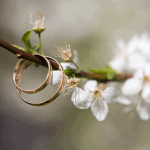What is the true nature of digital photography? Many people have been asking this question for a long time. In fact, when people ask the question about the true nature of digital photography, they often mean to ask whether it is art or it is science.
Here are some arguments for both sides:
A) Art many people consider digital photography as an art because it allows for an expression of emotion. They believe that digital photography is a continuation of the art of drawing or painting. You see, digital photography is just like painting in the sense that although it does take accurate pictures of reality, it also allows for some modification through the various digital tools available today.
Even without the editing many people still believe that digital photography is art because of the fact that it does take an artist’s eye to find a great subject of digital photography. The nature of digital photography as an art has something to do with the fact that an artist is able to express emotions and statements through visual subjects.
The supporters of the “artistic nature of digital photography” also argue their case by stating its ability to convey emotional messages through aesthetics. The beauty of each photograph, of course, needs also to be credited to the person taking the pictures. One of the strongest arguments for the artistic nature of digital photography is the fact that the picture is rarely really what is seen with the naked eye. Through the camera and computer, a person can alter the image in order to present what he or she wants to show.
B) Science some people argue that science is the true nature of digital photography. One argument is that photography, unlike painting, actually comes from something existing and not from a painters mind or emotion. This can be very persuasive since, indeed, a photographer does not actually make photographs. He or she merely takes them.
Another argument regarding the scientific nature of digital photography is the fact that the editing that people do and adjustments that photographers make are based on a series of steps that can be narrowed down scientifically. People who argue for the scientific nature of digital photography may reason that the same series of steps can be taken in order to achieve the same results. There is a certain quality of constancy about digital photography that renders it a science.
But what is the true nature of digital photography? We have read the various arguments supporting science and art. There appears to be no solution to this question, right?
The true nature of digital photography will always remain to be a paradox. This means that though it can be considered as an art, it can also be considered as a science. When is the paradox of the nature of digital photography solved? Well, it is solved when a person takes a digital photograph.
The true nature of digital photography lies in the hands of the person who takes the pictures. The way a person treats the process defines the nature of digital photography for him or her. It is not absolutely art nor is it absolutely science. The true nature of digital photography is a paradox. It might seem to be contradictory, but it is somehow true.
























